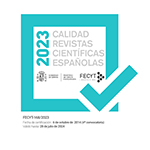Public Policies and Regional Development: Exploratory Considerations on the 'Program Territories of Citizenship program-Brazil'
Abstract
The Territory of Citizenship Program (PTC) was created in 2008 aimed at reducing Brazilian regional socioeconomic inequalities and standardizing some federal actions and projects related to territorial policies. The main goal of this study was to verify, from the perspective of its institutionality, the progress of the PTC, considering the main challenges to the achievement of its objectives. Thus, it has started with a discussion about public policies, development and territory until the decree that institutionalized the PTC, among other available information about the program. The methodology used was descriptive, exploratory, based on bibliographical and documentary research. The history of territorial policies indicates that these were not priorities for the Brazilian State, obtaining relative prominence only in the last decades. In this way, there are significant obstacles for such policies to provide a more equitable development. Thus, it is concluded that there is considerable difficulty for the PTC to reach the goals proposed when it was created. In addition, there is an explicit limitation regarding the attempt to standardize the implemented actions and the expected results, since the territorial peculiarities were ignored, preventing the achievement on part of the objectives in the program.
Downloads
Article download
License
In order to support the global exchange of knowledge, the journal Política y Sociedad is allowing unrestricted access to its content as from its publication in this electronic edition, and as such it is an open-access journal. The originals published in this journal are the property of the Complutense University of Madrid and any reproduction thereof in full or in part must cite the source. All content is distributed under a Creative Commons Attribution 4.0 use and distribution licence (CC BY 4.0). This circumstance must be expressly stated in these terms where necessary. You can view the summary and the complete legal text of the licence.











